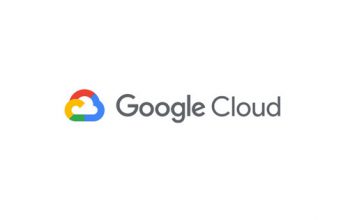By AI Trends Staff
Google has had an eventful couple of weeks, announcing enhancements to its search and map capabilities at its virtual “Search On” event on Oct. 15, and on Oct. 20 being accused by the US Justice Department of engaging in anti-competitive practices in order to preserve its search engine business.
At the Search On event, Google detailed how it has tapped AI and machine learning techniques to make improvements to Google Maps as well as Search.
In an expansion of its search “busyness metrics,” users will be able to see how busy locations are without identifying the specific beach, grocery store, pharmacy or other location. COVID-19 safety information will also be added to business profiles across Search and Maps, indicating whether the business is using safety precautions such as temperature checks or plexiglass shields, according to an account in VentureBeat.

An improvement to the algorithm beneath the “Did you mean?” features of search, will enable more accurate and precise spelling suggestions. The new underlying model contains 680 million parameters and is said to run in less than three milliseconds. “This single change makes a greater improvement to spelling than all of our improvements over the last five years,” stated Google head of search Prabhakar Raghavan in a blog post.
In an improvement called Passages, an individual passage can be served up in response to a question, instead of a single web page. It does this by assessing the relevancy of specific passages, not just the overall page, helping to find “needle-in-a-haystack” information. Raghavan suggested the improvement will improve 7% of search queries worldwide.
In an example, a person asked, “how can I determine if my house windows a UV glass?” A ‘before’ screen on a list returns some website links; the ‘after’ screen on the right offers specific instructions, to hold a match up to the window.
“We’ve applied neural nets to understand subtopics around an interest, which helps deliver a greater diversity of content when you search for something broad,” Raghavan stated.
Data Commons Project Data More Plugged into Search
Google has been working since 2018, on the Data Commons Project, an open knowledge database of statistical data started in collaboration with the US Census, Bureau of Labor Statistics, World Bank and other organizations. New improvements make the information more accessible through Google Search.
If the user asks, “how many people work in Chicago?” the modified version taps into the Data Commons dataset. “We use natural language processing to map your search to one specific set of the billions of data points in Data Commons to provide the right stat in a visual, easy to understand format,” Raghavan stated.
Google Maps, in use since 2016, gathers its “busyness” insights from analyzing, aggregating and anonymizing location history data from users who have opted to turn the setting on in Google Account. The data is used to calculate the busyness of a place for every hour of the week. “The busiest hour becomes our benchmark—and we then display busyness data for the rest of the week relative to that hour,” stated Matt D’Zmura, Software engineer of Google Maps, in an account in Analytics Insight.
The “busyness” information will surface in directions and on maps, so that users do not need to search for a specific place to see how busy it is. The features will soon be available to Android, iOS, and desktop users worldwide, Google indicated.
On the business side, the outlook for Google’s digital advertising business remains an issue amid the coronavirus pandemic, according to a recent account in Investor’s Business Daily. A rebound in Google’s core internet search advertising business is key for the stock, stated Bank of American analyst Justin Post in a recent report to clients. Google has a scheduled quarterly earnings report on Oct. 29.
YouTube’s ad revenue growth came in under expectations in the June quarter while cloud computing revenue growth slowed from the previous quarter, Post reported. Google has struggled to gain share in cloud-computing services against Amazon and Microsoft, however Google has strength in its AI-spanning digital advertising, Google Cloud Platform, YouTube and its search technology businesses, the analyst indicated.




